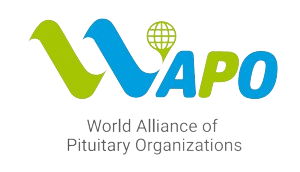We are pleased to announce that the findings from our recent acromegaly and NETs global survey have been published in Advances in Therapy, in the paper titled:
Key Device Attributes for Injectable Somatostatin Receptor Ligand Therapy in Acromegaly and Neuroendocrine Tumours
The scientific committee surveyed patients, HCPs and non-HCP caregivers to assess current opinion surrounding SRL device attributes associated with the most favourable injection experience for people living with acromegaly and neuroendocrine tumours (NETs).
The findings identify the key features of injection devices for SRL therapy and underscore the importance of involving patients in treatment decisions.
Read the publication, download the survey overview and get the key clinical takeaways below.
Clinical Takeaways
-
Attributes that significantly impact the treatment experience for both patients and caregivers include ease and confidence of device use, device safety with a focus on minimising contamination risks and less burdensome injections
-
The survey underscores the need to boost confidence in administering SRL injections for non-HCP caregivers and self-injecting patients. Achieving this involves device-specific training, patient education, instructional videos, online resources, and continued support from HCPs
-
Patient and caregiver opinions play a crucial role in advancing device design, enabling shared decision-making, and selecting suitable injection devices tailored to individual therapeutic requirements
Scientific Committee
Dr Jens Otto Lunde Jørgensen, Department of Endocrinology and Internal Medicine, Aarhus University Hospital, Aarhus, Denmark
Prof. Wouter de Herder, Department of Internal Medicine-Endocrinology, Erasmus University Medical Centre, Rotterdam, Netherlands
Mrs Wendy Martin, King's College Hospital, London, UK
Ms Teodora Kolarova, International Neuroendocrine Cancer Alliance (INCA), Boston, MA, USA
Ms Muriël Marks, World Alliance of Pituitary Organizations (WAPO), Amsterdam, Netherlands
Ms Cecilia Follin, Lund University Cancer Centre, Lund, Sweden
Ms Wanda Geilvoet, Department of Internal Medicine-Endocrinology, Erasmus University Medical Centre, Rotterdam, Netherlands
Prof. Shlomo Melmed, Pituitary Center, Dept of Medicine, Cedars-Sinai Medical Center, Los Angeles, CA, USA





 Downloadable
Downloadable  5 MIN
5 MIN
 Jun 2025
Jun 2025 






